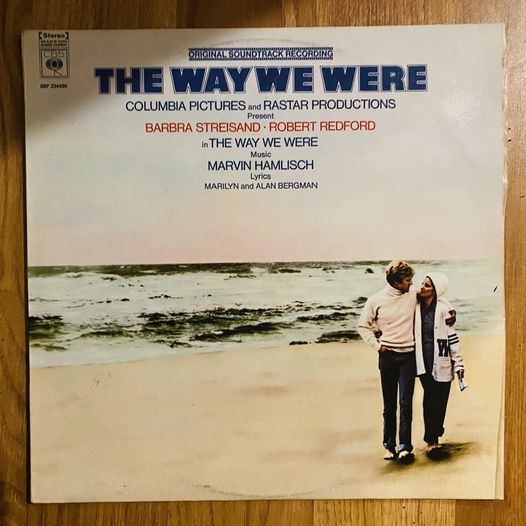This year Radioinfo will take you back 50 years to the songs that were released and charted in 1974. It was a mighty fine year for music.
It’s hard to know where to start with Barbra Streisand. The Way We Were, from the movie of the same name, might turn 50 this year, but Streisand herself first charted in Australia with People, in 1964, 60 years ago.
Her name has featured in the top 20 of the triple j hottest 100 in 2010 (via the US/Canadian dance duo Duck Sauce, who borrowed from Boney M, who borrowed from Nightrain) and her autobiography called My Name is Barbra, released late last year, has so much to it that it doesn’t have an index. If you plan to listen to her audio book version, you’ll need more than two days to complete it!
I selected Barbra this week because she is trending on X, and other places, due to Gina Rinehart trying to have a portrait of her removed from the National Gallery of Australia. By doing so many millions of us have paid attention to a painting that would have passed us by otherwise. This is called the Streisand effect. 20 years ago Streisand took a website to court because it was using an image of her home in a dossier of over 12K other images that were in some way adding to coastal erosion in California, and she wanted it removed. The lawsuit was dismissed. Prior to the lawsuit, the image had been viewed a handful of times. Afterwards hundreds of thousands downloaded it and so the Streisand effect was coined to refer to an attempt to censor information which does the exact opposite.
The Way We Were, the song and the movie, is still poignant and relevant five decades later. It is the meeting and romantic relationship between two inherently good people whose set of beliefs (or lack thereof) eventually drive them apart. The screenplay is adapted by Arthur Laurents from his book of the same name. The main character of Katie Morosky was written specifically for Streisand because Laurents felt it was time a strong Jewish, female role model was seen on screen. The ambivalent, pretty and rich Hubbell Gardiner, played by Robert Redford, was literally never properly fleshed out with too many cooks involved in the process of his character development. While the movie was a huge box office success, and this song won an Academy Award, no one involved felt that the end result was quite as good as it could have been.
Barbra Streisand was, and is, what Katie Morosky represented in this film, and more. Her father died before she turned 1. Because of her poor upbringing her mother fought her going into show business. Streisand refused to change her distinctive features to look more mainstream and took an ‘a’ out of her first name to make it unique, not the bland ‘Joanie Sands’ moniker that was suggested to her.
She was one of the first people to win an EGOT (Emmy, Grammy, Oscars and Tonys). That’s a current tally of five Emmys, ten Grammys, two Academy Awards, nine Golden Globes and four Peabody Awards. The Academy Award she won for Best Original Song for the love theme to A Star Is Born made her the first female composer to win it. Yentl, from 1983 saw Streisand the first woman writer, producer, director and star of a major studio film. She was the first female director to win a Golden Globe, for Yentl, too.
The second highest selling female recording artist of all time, just behind Mariah Carey but ahead of Taylor Swift and Madonna, Streisand, right from the start of her career, willingly took less money from her recording company to have full creative control. Barbra was approached by Jacqueline Kennedy Onassis in the 80s to write her autobiography but felt, at 42, she was still too young and had much more to achieve. Four decades later, last month, at 82, she released a new single called Love Will Survive which is featured in the television series The Tattooist of Auschwitz.
I’m not sure there will ever be another quite like her.
Jen Seyderhelm is a writer, editor and music trivia buff for Radioinfo.

